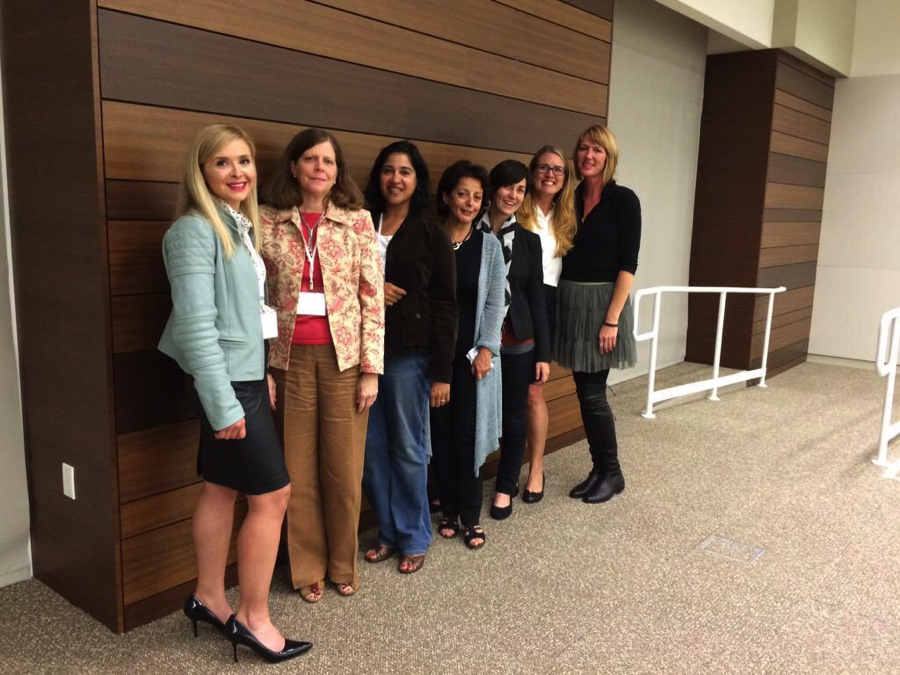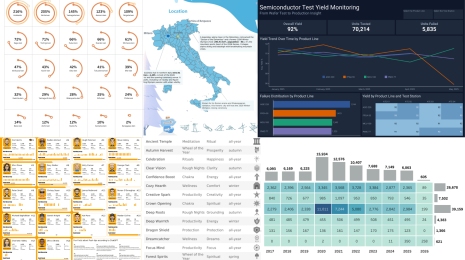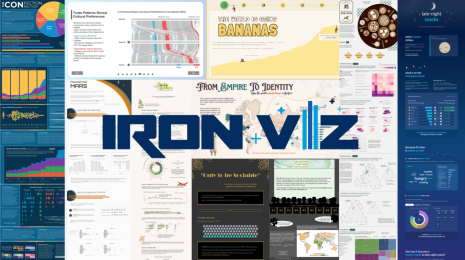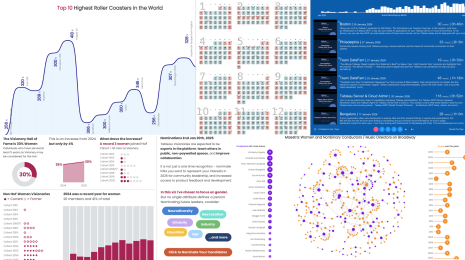Data + Women: Advice from the SFBATUG Members

From left: Ashley Ohmann, Carol Mullins, Ramya Raghunathan, Nelli Kayton, Trina Chiasson, Leigh Fonseca, Anya A'Hearn.
Note: This is the last installment of our four-part series, Data + Women. The other three parts highlighted humanitarian Jennifer Chan, Wells Fargo executive Christine Birtel, and promising data explorer Tara Kats. We’ll continue the discussion at the Data + Women Meetup at Tableau Conference.
How can women succeed in the data industry? For one, it’s important to push your own boundaries. That was the consensus at a recent SFBATUG (San Francisco Bay Area Tableau User Group) meeting on the topic of women in data. Here are some takeaways from the discussion.
Advice #1: Seize Opportunities You Didn’t Plan For
Things don’t always go as planned, but that doesn’t mean you’re out of luck, says Carol Mullins, associate commissioner for Technology and Survey Processing at the Bureau of Labor Statistics. Carol says in her experience, seizing unplanned opportunities has paid off.
“My experience has been that these sorts of opportunities can provide experiences that you otherwise would not have had, and may open up some doors that would not otherwise have been opened (or were even apparent),” she says.
Consider even those opportunities that seem like a step backward, says Carol.
“Sometimes, a step backward results in multiple steps forward,” she says.
Advice #2: Proactively Find People to Learn From
When you seize opportunities and push yourself, you’ll meet people who “welcome you, encourage and challenge you,” says Leigh Fonseca, LivingData’s managing director.
“They are your advocates and your allies. Be willing to change course, to ask for help, to stumble, and to learn,” she says.
Trina Chiasson, who founded the startup Infoactive in 2012, says she made a strategic choice in her early startup days to find more mentors and role models.
“There was a time where I felt like I was just making it up and I wasn’t sure how to be successful. When I started, I didn’t know many women who ran tech companies and I didn’t really have examples,” she says.
Trina began working to connect with people who possessed the skills she wanted to build. She asked colleagues and friends for introductions, and arranged coffee meetings with potential mentors to pick their brains.
“I try to pull strengths from lots of different contacts—a friend who’s extremely good at managing diverse communication channels, or another friend who’s good at taking business risks — and not focus on one role model who’s the be-all, end-all,” she says.
Advice #3: Embrace Discomfort and Give Yourself Permission to Fail
Follow your curiosity and believe you’ll grow, even when you're in unfamiliar territory, says Leigh.
“In fact, often when you're out on the edge is when you'll do some of your best work. Believe that you have a place in this exciting and challenging intersection. Your belief in yourself may be your strongest asset,” she says.
Trina says she aims to fail “a few times per week.”
“I had this idea that if I wasn’t failing on a regular basis, then I wasn’t pushing myself hard enough and wasn’t taking enough risks,” Trina says.
But committing to failing often also means giving yourself permission to be imperfect, says Trina.
“Because if you’re truly pushing yourself out of that comfort zone, you’re probably going to stumble, and that’s kind of the point,” she says.
Have insights or advice you’d like to share? Tell us in the comments below or visit the Data + Women Community page.
Not part of a Tableau User Group? Find a TUG near you.





